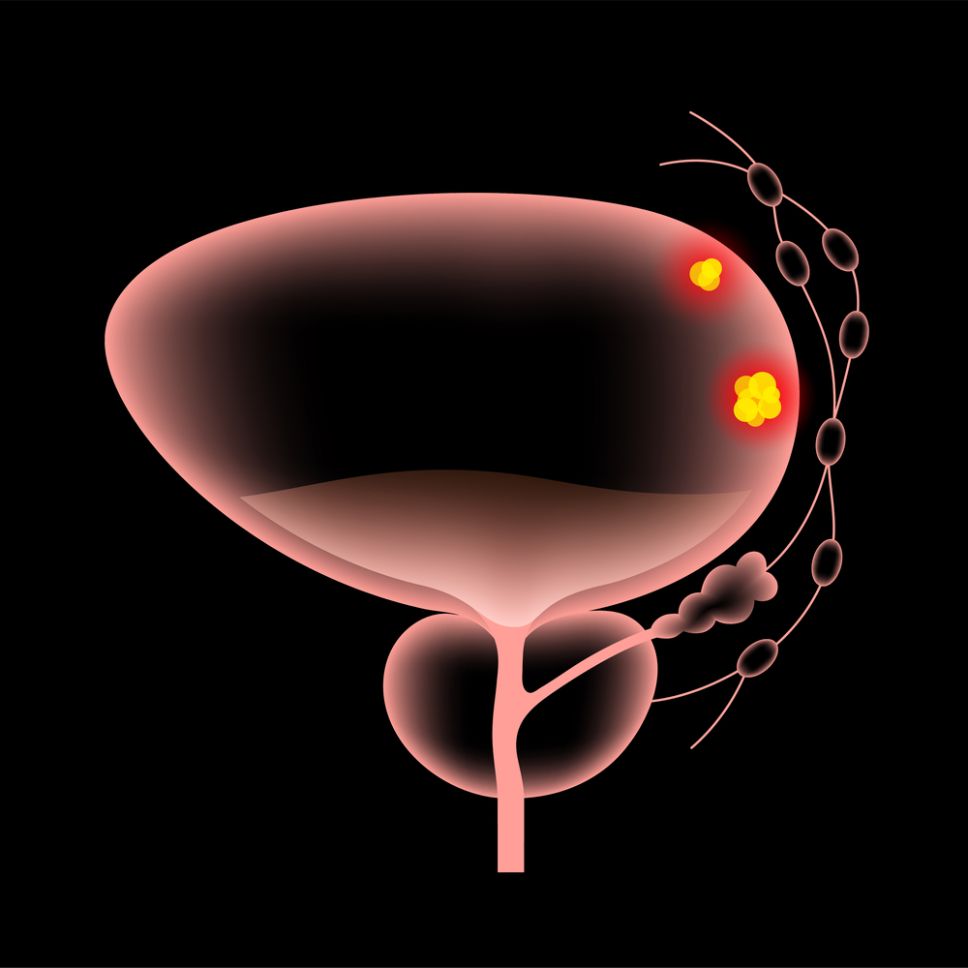Bladder cancer is a type of cancer that starts in the tissues of the bladder. It can spread to other parts of the body if it has reached an advanced stage.
The symptoms of bladder cancer vary from person to person. But the most common symptom is blood in the urine. This can make the urine appear dark yellow, light pink or bright red. Sometimes only a microscopic amount of blood is present, which can only be detected with a laboratory test (urinalysis or urine cytology). Most people who have bladder cancer are diagnosed in the early stages of the disease, when the tumor is small and still inside the bladder wall. When the cancer has spread deeper into the muscle walls of the bladder, it is called invasive bladder cancer and requires more intensive treatment.
If you have symptoms of bladder cancer, it is important to see your doctor right away. Your doctor can give you a diagnosis and work out your prognosis (your chance of getting better or worse).
A doctor will usually ask about your symptoms and do a physical exam. Then he or she will order lab tests to check for signs of bladder cancer. The most important test is a urine sample, which doctors use to look for the presence of cancer cells. If the cancer is in the earliest stages, these cells can usually be removed with surgery.
In some cases, when the tumor is more advanced and has spread to other areas of the bladder, it may be necessary to treat it with chemotherapy or radiation therapy before surgery is possible. These treatments can also help control the spread of cancer and improve your chances of survival.

If the tumor has spread to other parts of your body, it may cause pain and other symptoms. For example, cancer that has spread to the bones can cause back pain. This can be a dull or stabbing pain and can affect your sleep. It can also be a sign of spinal cord compression, which can be life-threatening and needs to be treated immediately.
You are more likely to get bladder cancer if you have:
Bladder cancer is more common in men than in women, probably because more men smoke and are exposed to chemicals at their jobs. But women who have jobs that expose them to chemicals are at risk, too. People who have had a previous urinary tract infection or bladder stones are also at increased risk of developing bladder cancer. People who have had cancer in the kidneys or ureters, which are nearby organs, have a higher risk of getting bladder cancer.
Health professionals often talk about a 5-year survival rate for bladder cancer. This means that for every five people who are diagnosed and treated early, one will survive for at least 5 years. But survival rates are based on averages, and they may not apply to any individual patient. This is because the cancer can recur, and each person’s situation is different.









